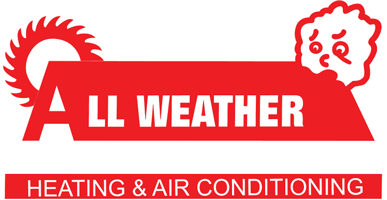We all like saving money on our monthly utility bills, but you should know there’s a way to do it when you aren’t even home.
It starts with your thermostat. By learning more about its special features and settings, you can structure its daily schedule around your personal preferences. This means establishing various temperature settings for when you’re home, away or even when you’re asleep.
If you’re willing to make these adjustments, you’ll be able to enjoy comfortable temperatures while also keeping more of your money. Check out our guide on how your thermostat can save you money in the summer:
While at Home
Whenever you’re at home, you want comfortable temperatures. It’s only natural to want your thermostat lower in the summer while you are in the house to make the most of the cool air.
But the most energy-efficient temperatures for the summer is actually around 78 and 80 degrees Fahrenheit. This way, you can stay cool while still lowering your monthly energy bill.
While Away
If you’re setting the temperature for when you are out of the house in summer, it’s extremely common to move the thermostat higher than you would if you were in the house.
If your home is located somewhere a little cooler, you can set the temperature as high as 88 degrees while no one is home before lowering it back to the sweet spot of 78-80 degrees once you’re home again. This way, your air conditioning unit won’t be working overtime to cool an empty house.
While Sleeping
For a full night’s rest during summer weather, you want a nice cool temperature. You should try and keep things between 68-72 degrees Fahrenheit. This will keep you from getting too hot or too cold while you’re trying to sleep.
Other Strategies for Lowering Energy Use:
- Install a smart thermostat: Trying a smart thermostat in the summer is an excellent way to reduce energy costs since it can plan your temperature adjustments according to your lifestyle and idea of what comfortable is. They can lower the temperature while you are home or sleeping, before allowing it to get a little warmer when no one is around. Using reputed brands and models such as the Lennox iComfort, you can adjust the temperature remotely through your smartphone, tablet or laptop. Planning smart thermostat installation in your Huntsville home can be the simplest strategy for maintaining comfortable, yet energy-efficient temperatures whether you’re at home or across the country.
- Upgrade your HVAC system: Upgrading your HVAC system saves money right from the start. If a system boasts high energy efficiency, you can also count on lower utility bills since more efficient equipment requires less energy to achieve comfortable temperatures. Air conditioning installation in Huntsville is a great way to beat the heat in the summer.
- Stay on top of routine AC maintenance: Whether or not you keep up with regular air conditioning maintenance in Huntsville can have a big impact on your monthly energy use. If you stay on top of cleaning key components like the coils, checking for damage and clearing air vents of dust and debris, you may notice your HVAC system run more efficiently. More efficient operation reduces strain on key parts and lowers operational costs, lowering total energy use and eventually the total monthly bill.
- Clean or replace the air filter on a regular basis: A regular schedule for cleaning or replacing the HVAC system’s air filter saves money by improving airflow. When filters become clogged, an AC unit has to work harder, and this greater strain could shorten the system’s life span and result in breakdowns.
- Verify your attic has enough insulation: Insulation is a crucial component for any energy-efficient home, securing the hot air outside and the cool air inside over the summer. The North American Insulation Manufacturers Association (NAIMA) recommends that homes in the southern United States should install at least 13-14 inches of insulation, while those in northern U.S. states should have 16-18 inches.
- Check your air ducts: A leak in the air ducts could increase your energy bills much more than 20 percent, plus it can also lead to problems with your water heater, clothes dryer and other appliances throughout your home. Finding any leaks fast and sealing them can fix both of those problems.
- Seal all other leaky spots in your home: Finding and sealing any remaining leaks in your home with caulk, foam sealant or weather-stripping can help keep it cooler on hot summer days. It’s also important to check for any gaps around windows, doors and even outdoor fixtures. Making time to seal leaks now can help you save a lot in the long run.
